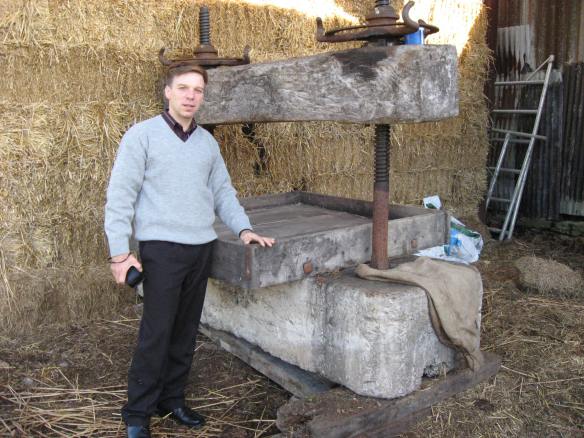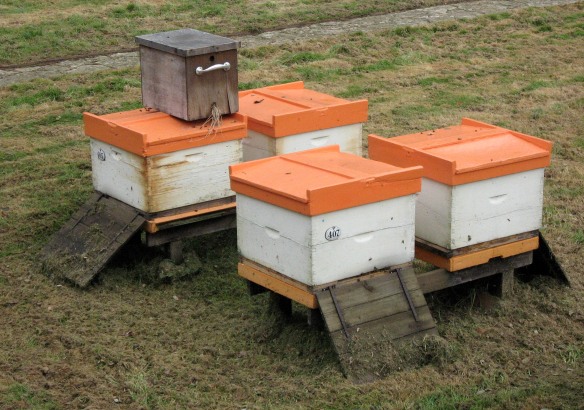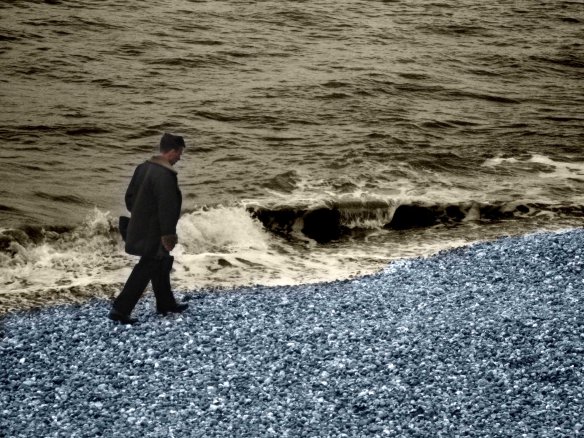In an earlier post (Our friend Vasily – early contacts) I wrote about how we got to know a very enterprising young man and his family in Belarus, as part of our sustainable development project. So in this post I will describe what we did next to help him develop his own business.
My wife and I thought hard about how best to support him. Eventually, it struck us that because he was so adept at learning new skills and absorbing information, exposure to beekeeping in this country might stimulate new ideas and encourage him in his business venture.
He was very receptive to the idea, so we put together a programme of visits and activities to make sure that he got the most out of his trip. Probably the most difficult aspect was persuading the British Embassy in Minsk to give him a visa. However, after the usual bureaucratic nightmare which surrounds anything to do with visas (whatever the country), dates were agreed, the visa obtained and his flight booked.
Vasily stayed with us for a week and it was like we were seeing our own country through fresh eyes. I will never forget the look of astonishment on his face when we passed Stonehenge. His curiosity was endless, he never stopped asking questions. Why are the roads so twisty? Why can’t you walk anywhere you like in the countryside? Why don’t we grow vegetables in our garden? One of the big trips we planned involved meeting up with a beekeeper, who was very involved in beekeeping circles at county level. So we visited his apiary one day:
Vasily was interested in everything and spent a long time looking at all aspects of his hives, down to how the wooden frames were jointed and the size and structure of the wax foundation sheets. They shared their concerns about the damage done to hives by the Varoa mite which came to Belarus via Russia some years before it hit the UK. Their conversation certainly stretched my Russian technical vocabulary, as Vasily spoke no English.
On another day we went with Ken to visit Buckfast Abbey, home of one of Vasily’s beekeeper heroes, the Benedictine monk Brother Adam, a world authority on bees and bee breeding. Unfortunately, the Abbey’s beekeeper was out on the day we went down there, but we saw some of the hives at the Abbey. Then from Ken’s local knowledge we were also able to visit one particular apiary out on Dartmoor which involved a tricky manoeuvre on a gated bridge over a fast flowing stream.
On the way back we stopped off at a large beekeeping supplier’s: it was like an Aladdin’s cave for Vasily, containing many things which he had seen on the internet and in magazines, but not been able to get in Belarus. We also visited a honey producer who in his 70s was still singlehandedly looking after over 300 hives. To get the volume of honey he produced he had to manhandle these hives onto a truck which he placed at key places on Dartmoor that were best for heather honey. Vasily was very impressed at his energy and vitality.
On another occasion we took Vasily to visit our friends who run a dairy farm and he was fascinated to see the amount of equipment that Paul used and particularly the milking parlour:
Vasily was like a sponge taking in everything he saw, including things we just take for granted, such as a bird feeder:
and a metal bench next to a favourite beauty spot (which he was very keen to try to make when he got back home):
Seeing him holding a piece of Old Man’s Beard in the shot reminds me that he also took an enormous interest in our trees and plants, many of which he had not come across before.
I had told him about our friends who make cider the traditional way using an old- fashioned cider press. I had documented the process in photographs from a cider pressing day a month or so earlier and then took him to see what the press looked like:
 Of course, we had to take him to see our local carnival:
Of course, we had to take him to see our local carnival:
and, finally, the day before he left we went down to Lyme Regis where he told us that this was the first time he had ever seen the sea:










Pingback: Our friend Vasily moves into self-employment | wordscene